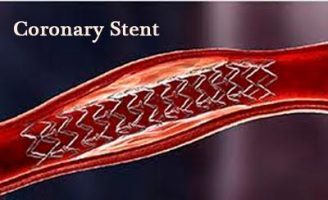- Home
- Editorial
- News
- Practice Guidelines
- Anesthesiology Guidelines
- Cancer Guidelines
- Cardiac Sciences Guidelines
- Critical Care Guidelines
- Dentistry Guidelines
- Dermatology Guidelines
- Diabetes and Endo Guidelines
- Diagnostics Guidelines
- ENT Guidelines
- Featured Practice Guidelines
- Gastroenterology Guidelines
- Geriatrics Guidelines
- Medicine Guidelines
- Nephrology Guidelines
- Neurosciences Guidelines
- Obs and Gynae Guidelines
- Ophthalmology Guidelines
- Orthopaedics Guidelines
- Paediatrics Guidelines
- Psychiatry Guidelines
- Pulmonology Guidelines
- Radiology Guidelines
- Surgery Guidelines
- Urology Guidelines
How to avoid Stenting in Coronary Artery Spasm

Physician researchers at Thomas Jefferson University suspect that some cases of coronary artery spasm go unrecognized and are incorrectly treated with stents. The good news there could be a simple fix to eliminate these unnecessary stenting procedures. The team published a case series in Catheterization and Cardiovascular Interventions describing six patients who were scheduled for angioplasty and stenting for the diagnosis of coronary artery disease (five of whom had a cardiac catheterization days prior). However, when the cardiologists gave nitroglycerin prior to placing the stent, the blockages resolved, indicating the true diagnosis of coronary artery spasm. Angioplasty was deferred and all patients were successfully treated with medication.
"Our suspicion is that some patients receive stents unnecessarily since they are misdiagnosed as having fixed atherosclerotic blockage while the true culprit, coronary spasm, goes unrecognized," said senior author Michael Savage, M.D., Director of the Jefferson Angioplasty Center and the Ralph J. Roberts Professor of Cardiology in the Sidney Kimmel Medical College at Thomas Jefferson University. "Cardiologists need to know that they could be overlooking coronary spasm and thus, over treating their patients with stents."
Cardiovascular guidelines on cardiac catheterization and coronary intervention with stents go to great lengths emphasizing the importance of antiplatelet (blood thinning) medications to prevent blood clots in the stents. On the other hand, they fail to mention any role for intracoronary nitroglycerin during cardiac catheterization or before angioplasty with stenting.
"By simply administering nitroglycerin before the procedure, we can save patients from unnecessary risks related to stents such as blood clots and restenosis," said Alec Vishnevsky, M.D., cardiology fellow and first author on the study. Coronary spasm can be treated with medications that dilate the blood vessels. Unless there is severe atherosclerotic disease, stents are generally not recommended since spasm can reappear in the artery upstream or downstream to where the stent is placed.
Dr. Savage and his team also noticed a trend among the six patients in the study. Most were younger than the average heart disease patient and had only a single vessel affected.
"Interventional cardiologists should be especially suspicious of coronary artery spasm when they encounter a patient under the age of 60 with disease isolated to a single vessel. We recommend that future guidelines include intracoronary nitroglycerin for these patients," he said.
You can read the full Article by clicking on the link :
Vishnevsky, A., et al. Unrecognized coronary vasospasm in patients referred for percutaneous coronary intervention: Intracoronary nitroglycerin, the forgotten stepchild of cardiovascular guidelines. Catheterization and Cardiovascular Interventions, March 2017 DOI: 10.1002/ccd.27034

Disclaimer: This site is primarily intended for healthcare professionals. Any content/information on this website does not replace the advice of medical and/or health professionals and should not be construed as medical/diagnostic advice/endorsement or prescription. Use of this site is subject to our terms of use, privacy policy, advertisement policy. © 2020 Minerva Medical Treatment Pvt Ltd